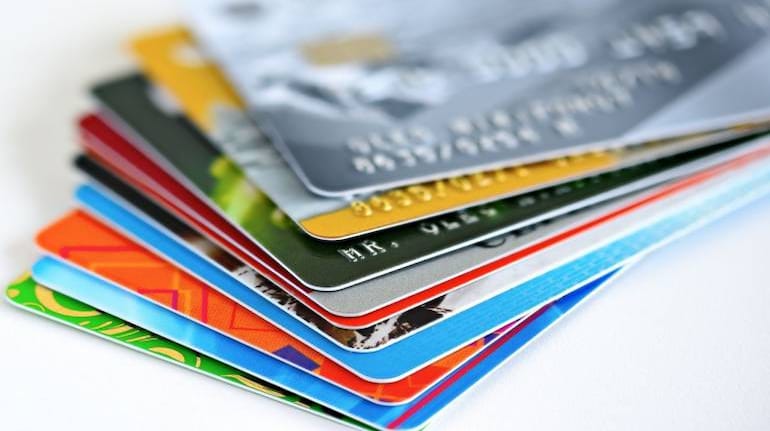There are multiple reasons why credit card companies may decide to cancel your credit card, ranging from a high credit card utilization ratio to violating terms and conditions, such as reward policies.
Recently, a major private-sector bank reportedly canceled a significant number of credit cards. For years, we've been accustomed to banks aggressively promoting their credit cards, even bombarding existing credit card holders with messages encouraging higher spending and increased eligibility limits. However, it's essential to be aware that banks also possess the authority to cancel your credit card, as illustrated by a real-life example.
Notably, a few years back, an individual consistently invested Rs 4 lakh per month in the National Pension Scheme (NPS), specifically the Tier-2 account. NPS is a favored retirement savings investment with attractive income-tax deduction benefits. There are two types of NPS accounts: Tier-1, which has a lengthy lock-in period until retirement age, and Tier-2, which functions similarly but lacks a lock-in period.
In this particular scenario, the individual utilized their credit card to invest in NPS-2 and earned reward points for the transaction. Shortly after, they withdrew the money from NPS-2 and utilized it to pay their credit card bill, incurring only nominal transaction charges and gaining a substantial amount of reward points without any actual loss of funds.
However, the bank that issued the credit card perceived this transaction as a breach of their reward policy and subsequently decided to cancel the individual's credit card. This serves as just one instance demonstrating how and why banks may choose to cancel your credit card.
Credit cards have become a widespread financial tool utilized by many individuals for daily transactions. They offer the convenience of cashless payments, along with various rewards and benefits. Nevertheless, credit card issuers have specific policies and regulations that customers are required to follow. Failure to comply with these policies can lead to the cancellation of your credit card. In this article, we will delve into some common mistakes that could potentially result in the cancellation of your credit card.
Late or Missed Payments
One of the primary causes for credit card cancellation is late or missed payments. Credit card companies depend on interest and fees to maintain their revenue streams, and late payments can disrupt their cash flow. If you frequently miss payment deadlines or consistently pay after the due date, your credit card issuer might decide to cancel your card. Moreover, this could have adverse effects on your credit score.
To steer clear of this issue, consider establishing automatic payments or setting up reminders to guarantee timely payments and prevent missing due dates.
Non-Adherence to Terms and Conditions (MITC)
Upon applying for a credit card, you agree to abide by specific terms and conditions (MITC) established by the card issuer. Should you breach these terms and conditions, the issuer retains the right to cancel your credit card. Examples of violations could encompass using the credit card for illegal activities such as gambling or money laundering, employing a personal credit card for business purposes, or providing false information during the credit card application process.
To avoid this issue, take the time to thoroughly read and comprehend the terms and conditions of your credit card. Additionally, ensure that you solely utilize your personal credit card for personal expenses and refrain from using it for any business-related transactions or resale of goods.
Inactivity
According to the latest RBI guideline, your bank has the authority to cancel your credit card if it remains unused for a period surpassing one year.
To prevent this, ensure that you utilize your credit card at least once within every twelve months, even for minor purchases. Setting up automatic payments for recurring expenses, such as subscriptions or bills, can also help keep your card active.
Changes in Credit Score or Credit Report
Your credit score and credit report provide a snapshot of your financial well-being. If your credit score experiences a significant drop or negative marks appear on your credit report, the card issuer may decide to cancel your card. This is because your credit score reflects your financial management capabilities and punctuality in bill payments.
To steer clear of this situation, regularly monitor your credit score and credit report. Address any negative marks on your credit report and make an effort to improve your credit score.
High Credit Utilisation
Your credit utilisation refers to the portion of credit you use relative to your total available credit. A high credit utilisation rate may raise concerns for the issuer, indicating potential financial strain. Consistently utilizing more than 30 percent of your available credit limit could lead the issuer to consider cancelling your card.
To prevent this issue, aim to maintain your credit utilisation below 30 percent of your credit limit.
In conclusion, being a credit card owner entails specific responsibilities and commitments. Failing to fulfill these obligations can result in the cancellation of your credit card. To avoid this, ensure timely bill payments, maintain a low credit utilisation rate, preserve a favorable credit score, and adhere to the terms and conditions of your credit card.






.jpg)